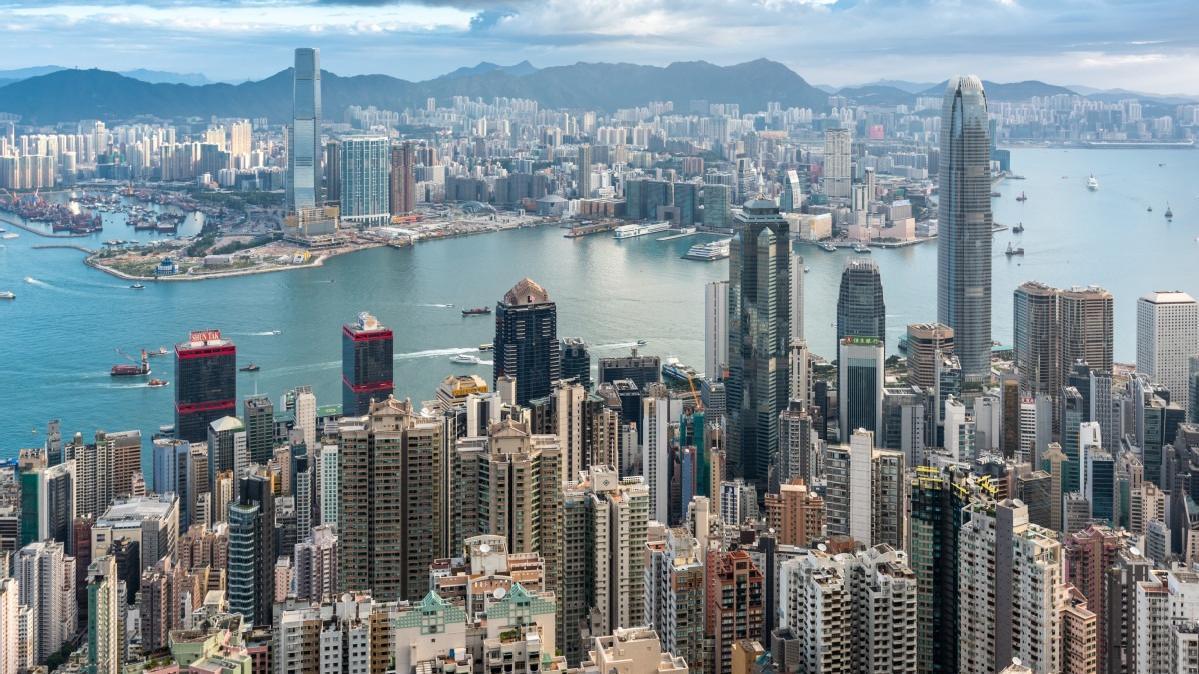
Hong Kong’s “new industrialization” drive is taking shape as the first project approved under the special administrative region government’s industrial acceleration program was launched on Monday. This will invest HK$600 million ($77.2 million) in building 10 smart pharmaceutical production lines in the city.
Construction of the smart production project of Hong Kong-based Jean-Marie Pharmacal Co, a subsidiary of Jacobson Pharma Corp, is expected to begin this year. The first production line is projected to be put into trial production and operation by the end of 2026, while the remaining lines are expected to follow suit by the end of 2028. The project is expected to break even two to three years after that.
Around HK$200 million of that budget will be funded by the government-supported New Industrialisation Acceleration Scheme (NIAS).
READ MORE: HKSAR, mainland ink cooperation agreement on new industrialization
The new facilities will be mainly used to produce sterile eye drops, solid dosage forms, and oral liquid medicines, with the integration of cutting-edge technologies like artificial intelligence (AI), real-time data analytics, and robotics.
Through a tender process, the company acquired a purpose-built pharmaceutical facility at Tai Po InnoPark in mid-February. Originally intended for pharmaceutical use, the facility will be expanded to more than 70,000 square feet (6,500 square meters).
The NIAS approval could accelerate the establishment of smart productions lines, while also helping the company create around 200 job opportunities in research and development, quality assurance and smart manufacturing, said Derek Sum, chairman and CEO of Jacobson Pharma.
“The successful approval of this project reflects the Hong Kong Special Administrative Region government’s unwavering commitment to advancing new industrialization,” said Sun Dong, secretary for innovation, technology and industry.
Sun said the development of a technology-driven real economy is an important engine for the high-quality economic growth of Hong Kong, and achieving this vision requires the collaboration of all sectors, particularly the business community.
The HKSAR government will continue to promote reforms that can help dismantle barriers in land approval and funding applications, to encourage enterprises to set up more smart production facilities in Hong Kong, Sun added.
Launched in September with a government allocation of HK$10 billion, the NIAS aims to provide funding support for enterprises engaging in industries of strategic importance, and help them set up new smart production facilities in the city. These sectors include life and health technology, AI and data science, as well as advanced manufacturing and new energy technologies.
Under the program, each project is required to have a minimum cost of HK$300 million, with no less than HK$200 million invested by the enterprise. The government’s funding is capped at one-third of the total cost or HK$200 million, whichever is lower.
READ MORE: New industrialization empowers HK to become international I&T center
Prior to the NIAS, the HKSAR government optimized its New Industrialisation Funding Scheme early last year, a similar program that aims at subsidizing manufacturers to establish new smart production lines in the city. According to Sun, more than 100 such production lines have received funding.
Regarding the progress of the under-construction Hong Kong Park of the Hetao Shenzhen-Hong Kong Science and Technology Innovation Co-operation Zone, which is seen as an important engine for Hong Kong’s technology development, Sun said the contribution from market resources is critical given the pressure on public finances. He said the park’s management team is working to attract more private investments.
Sun added that three buildings in the park have been completed or are nearing completion, and five more buildings are expected to be completed from 2027.
Contact the writer at irisli@chinadailyhk.com


